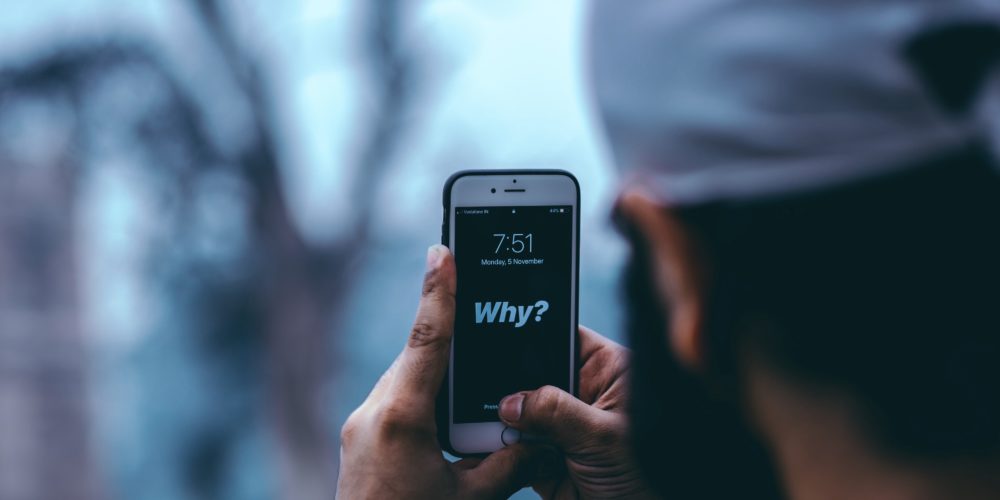Are you still answering the phone all day long?

If a telephone is ringing, it must answered.
If you are of a certain generation or earlier, that was just a fact of life. The phone rang, we answered it. Did we want to receive the call right then? Were we expecting it? Did we feel like talking to a random person? Were we busy doing something else?
No matter. The phone rang; we answered.
It’s time we started looking at the wired telephone as an archaic technology. It was fit for a particular time. In those days there were few other meaningful communication modes. If you couldn’t meet someone in person, you made a phone call; or you wrote them a letter. When the phone rang, you had no idea whether it was someone desirable or undesirable on the other end; you had to answer it to see. If you missed the call, you’d never know.
The (wired) telephone managed to be both interruptive and exclusive. It would rudely ring its way into your day (back in the day) regardless of whether you welcomed its ringing or not. And it demanded your undivided attention. We could hope to multitask when on the tethered phone, but it was difficult to speak meaningfully to anyone without paying attention.
Then we got the mobile phone; caller ID; and the internet got connected to the phone. Everything changed. Text messaging exploded. Many options to the phone call popped up.
And so, your teenaged children do not spend time chattering on the phone in the way you might have done when you were their age. ‘Chat’ for them is a different thing. Modern communication allows us to choose when to participate, and how much to communicate. Most people are making the most of those choices.
Not the people in my age group, though. They mostly still answer the phone, every time it rings. Even when they don’t want to talk, they answer to say they will call back. The etiquette and urgency of times past is hardwired.
So here’s a confession: I don’t use my phone as a phone. I almost never answer phone calls; the ringer is set to silent. And I also make very few calls myself.
Is that weird? Perhaps. Is it offensive? It isn’t meant to be. Let me explain.
Our time is our most precious resource, and it starts running out from the time we are born. It is extremely important to use time wisely and efficiently. It really matters that we focus the ever-diminishing stock of hours left to us on things that really matter to us.
And so I don’t really answer the phone, unless I absolutely have to. At any point in the day, I am doing something intentional, even when I am seemingly doing nothing. It is very easy to have your day jerked out of shape by an endless stream of phone calls that are all about other people’s needs and priorities. I can’t make time for something random all the time, because time is way more precious than that.
I do note the calls, of course, just as I note text messages and emails. I do ensure responses are made, by me or by others as appropriate. I do return calls when a call is necessary. But generally speaking, calls will happen when scheduled, not at random times of day. This is not disrespectful, because I am also very respectful of the time of others.
I am not recommending that you stop answering phone calls. My behaviour is mine, and as a card-carrying introvert it suits me greatly to protect my day and to communicate on my own terms.
You may be very different. Your work may require you to be on call. You may really love the spontaneity of a surprise call. You may wish to leave yourself open to serendipity. The point is more about choosing, about ensuring enough time is dedicated to the things that should matter, and not just in being pulled here and there.
Greg McKeown, a great proponent of focused attention, makes this unforgettable point: if you don’t prioritise your life, someone else will.
And yet I watch many high-up people who can employ people to answer phones, and who need to use their time and attention more carefully, still being jerked off-course by an endless stream of calls, dissipating their mental energy and breaking their concentration repeatedly. And I think: why are they still captive to a dead technology?
Not convinced? Join me next week to discuss time and choices.
If you choose to.
(Sunday Nation, 23 February 2020)

Buy Sunny Bindra's new book
The X in CX
here »
Popular Posts
- The pause that saves usJune 8, 2025
- Where are you rushing to—your funeral?June 29, 2025
- How to spot a real thinkerJune 15, 2025
- The first push is the hardestJune 1, 2025
- Built the app, forgot the flowJune 22, 2025















